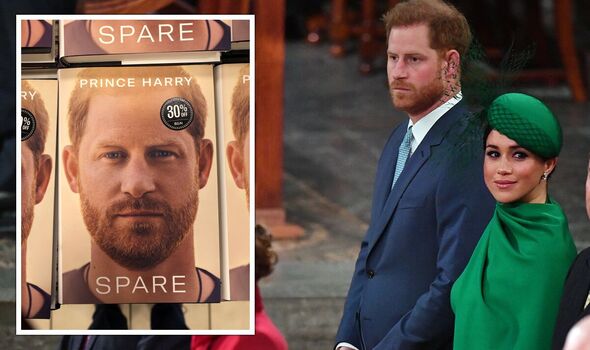Blog Post
Why Prince Harry’s attack on the monarchy is backfiring
By Jonathon Van Maren
If you’re going to kill the king, you’d better not miss. Prince Harry might have considered this before he decided to make the wildest dreams of tabloid editors come true by not only publishing a tell-all memoir Spare, but hitting the interview circuit, too—with every smirk, grimace, and expression endlessly analyzed for what it might tell us about the king and his heir, Harry’s brother William. The saga may simply seem like celebrity gossip, but as the recent funeral of Queen Elizabeth II revealed once again, the monarchy is more than that. The House of Windsor is heir to one of the oldest monarchies in the world (Japan’s is the oldest, originating from at least the 6th century BC), and Harry appears determined to blow it up.
Thus, the story of the spare and his crusade of revenge is also a parable of our times. An ancient institution—and one of the only monarchies to emerge from the twentieth century intact—is under attack because a minor royal wants to use publicity as therapy. As Ben Shapiro noted, what makes Harry’s memoir “truly culturally seminal is the way in which it exposes the overt transformation of the goal of the Western leadership class from service to self-service. Harry is almost the Platonic ideal of the modern man: a beneficiary of a historic institution who decides that true heroism lies in destroying those institutions, all in the name of personal fulfillment.” Indeed, the only reason Harry will have gotten so much money for his book is because he agreed to dish on his family—that would have been a key part of the negotiations.
To be fair: Harry may have had an upbringing of immense luxury, but he was also the child of a nasty, public (and historic) divorce; he lost his mother in a hideous car crash at the age of 12; he endured her funeral in the royal goldfish bowl and his adolescence was hounded by the paparazzi he blamed for his mother’s death. The title of his memoir isn’t entirely inaccurate. You couldn’t pay me any amount of money to live the life of a minor royal, with every bit of your life examined in minute detail, half-truths constantly on the front pages, romantic relationships dissected, and having to smile winsomely through it all as you cut the ten thousandth ribbon on the new sewage plant in some London suburb. I don’t blame Harry and his American wife for wanting to get out. But getting out is one thing—this is quite another.
There is a growing consensus that Harry’s patricidal and fratricidal war on his family, who are responding by silently and stolidly getting on with it as they always do, is pretty gross. Even Don Lemon of CNN cut off one guest discussing Harry’s allegations by shaking his head and calling it all “gauche.” It’s great for ratings, but it comes off as Jerry Springer: The Royal Edition. The Prince of Wails talks about his private parts not once, but several times. He talks about his brother’s, as well. He reveals details about family members that are deliberate, shocking betrayals of confidence and not his stories to tell (and for money, at that). He complains constantly about his position in the hierarchy, which he deeply resents. And after all of that, he claims he wants to re-establish a relationship with his father and his brother although he must know that his willingness to publish private conversations makes that virtually impossible.
Then again, he may not. Harry’s memoir and interviews make it abundantly clear that he is simply not very bright. He’s also a spiritualist kook who says he contacted his mother through a medium, getting her endorsement of his path from the beyond (and handily, claiming Diana’s posthumous approval). He keeps some of Diana’s hair in his bedroom; he thanked it (her?) when he and Meghan found out they were pregnant. His conversations with his dead mother reveal someone deeply stunted by grief and trauma—he says Meghan (whom he endlessly compares to Diana) also prayed to his mother at her grave, with eyes closed and both hands pressed to the gravestone. If this stuff isn’t true, it is a deeply disgusting and cynical attempt to defend their attacks on their family by using Diana; if it is, it is very, very weird. It appears the Sussexes have decided that if William will be the heir to Charles and head of the Church of England, they will be heir to Diana and culty California spiritualism.
To say this is a result of Harry and Meghan’s generation wouldn’t be entirely fair. King Charles III was brought up straddling generations; he wanted more autonomy and self-actualization than his father and mother felt necessary, but is still old school enough that he is both a traditionalist (“anti-modernist to the marrow,” as Rod Dreher put it in a long 2012 profile titled “The Philosopher Prince”) and utterly committed to protecting the institution of the monarchy so carefully tended by his late mother. Harry and Meghan, however, came of age in a culture in which self-expression, self-creation, and “finding yourself” are the point of existence. The suffocating nature of an institution that values permanence over publicity; hierarchy over celebrity; the ancient over the modern—indeed, only accommodating the modern insofar as it served the ancient—was always going to be a lid on a boiling Hollywood pot.
Fortunately for the Windsors, I suspect that Harry’s obvious bitterness has blunted any potential damage to the monarchy as an institution. The Sussexes may be popular in the U.S. for the moment, but have become extremely unpopular in the UK, where public opinion actually matters. A majority want the Sussexes stripped of their royal titles. William and Kate remain wildly popular, with reviewers noting that even in Harry’s hit job they come off as sweet people (William, you may remember, is also the son of Princess Diana). Those commentators not required to ingratiate themselves to Harry to secure ratings bonanaza interviews were singularly unimpressed. He has made—and will continue to make—an enormous amount of money, but in the process he has damaged himself and become a much less sympathetic figure.
Prince Harry is hitting the TV networks trying to sell the story of a triumph. It ultimately comes off as a tragedy.








